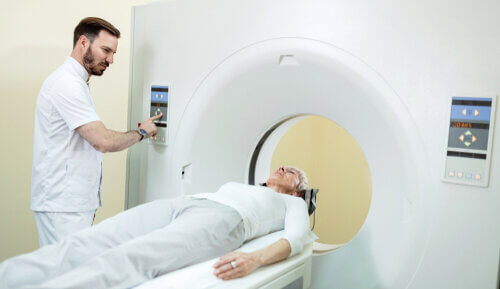
Page contents
Around 1 in 3 older people develop some form of dementia. It is currently the leading cause of death in England and Wales. You may never develop dementia, but being armed with knowledge of symptoms to watch out for and how to test for dementia and get a diagnosis can help you to catch it early and to make arrangements for your future.
Diagnosis rates for dementia
Diagnosis rates for dementia are surprisingly low. According to Alzheimer’s Research UK, in 2017/18 the UK country with the highest rate of diagnosis in people over 65 with dementia was Northern Ireland, at 73%. The lowest was Wales, with a little over half of estimated cases, 53%, having a formal diagnosis.
It is not clear why diagnosis rates are low.
It may be that many people do not realise they have dementia, do not want to have that ‘label’ for personal reasons or because they know there isn’t a cure anyway, or because they think their care will cost more if they have been formally diagnosed.
Covid-19 may also have had an impact, with suggestions that remote appointments may be in part to blame for falling diagnosis rates.
Why should you get a dementia diagnosis?
Dementia is a progressive illness and while there is no cure, getting diagnosed as early as possible can enable you to access medications and therapies to help with symptoms, as well as make arrangements for your future care and legal affairs such as appointing a Power of Attorney.
Going to a GP if you suspect dementia can also rule out other health issues that are causing your symptoms. It may not be dementia at all. Some symptoms associated with dementia can also be a sign of depression, delirium or other neurological conditions.
Seeking a diagnosis can enable you to get the right treatment or support for the right condition.
Symptoms of dementia
Early symptoms of dementia include:
- Memory problems
- Finding everyday tasks such as cooking, housework and washing more difficult
- Changes in behaviour and personality
- Poor judgement
- Difficulty making decisions
- Struggling to find the right words
- Getting lost in familiar places
Risk factors for developing dementia
Sometimes people don’t think to get tested for dementia, particularly if they are younger. Dementia certainly is most prevalent in the over 65s but it can happen in younger people to. Young-onset dementia makes up around 5% of all cases, according to Dementia UK.
Often getting dementia is luck of the draw, but there are risk factors that can make you more susceptible.
These include:
- Age – The vast majority of people living with dementia are over the age of 65, and your likelihood of getting it increases steadily after that age.
- Family history – While dementia is not usually hereditary, some types can be. There are hereditary forms of Alzheimer’s disease and frontotemporal dementia, called familial Alzheimer’s disease and familial frontotemporal dementia, respectively.
- Lifestyle – The Alzheimer’s Society found that 4 in 10 cases of dementia are preventable. Lifestyle factors that can raise your risk include:
- Smoking
- Lack of exercise
- An unhealthy diet (also Type 2 Diabetes)
- Drinking too much alcohol
- Lack of cognitive stimulation
- Depression and loneliness
- Hearing loss
- Conditions that affect the brain, such as stroke or traumatic head injury
How can I get tested for dementia?
If you suspect that you or a loved one may have dementia, the first port of call is a GP.
They will conduct some preliminary assessments. This is to see if anything else may be causing your symptoms. If they think you may have dementia, they will refer you for further tests.
These tests look at how various organs in your body are functioning; this can help doctors to rule out other conditions and to determine which type of dementia you have.
There are different assessments to establish whether somebody still has mental capacity to make informed decisions about their care and finances.


